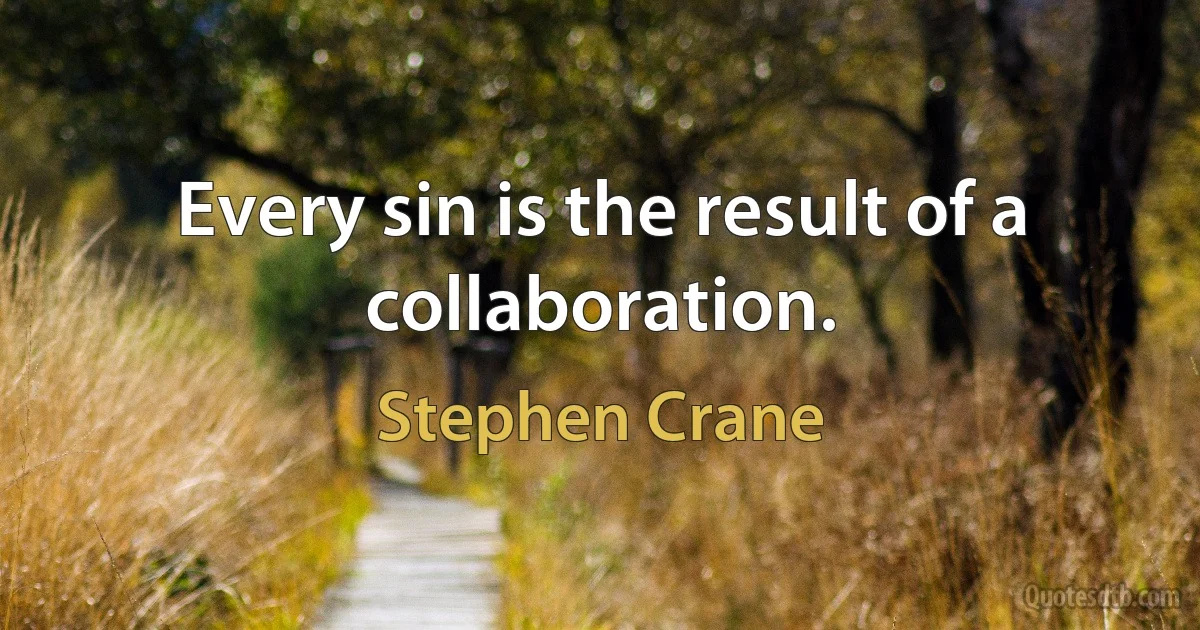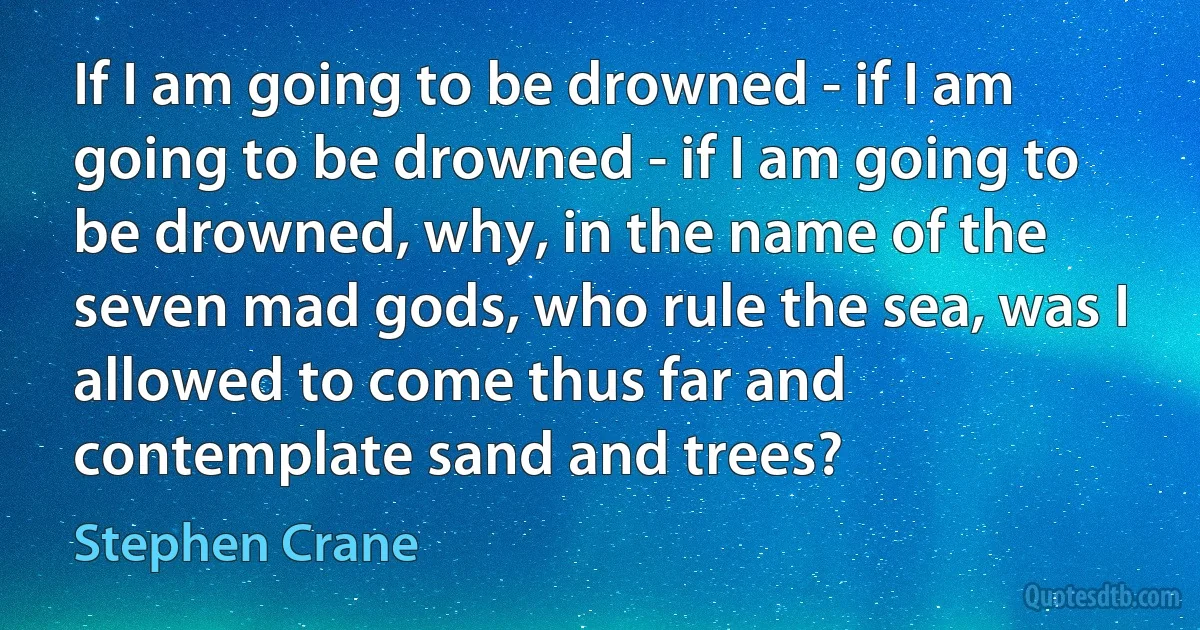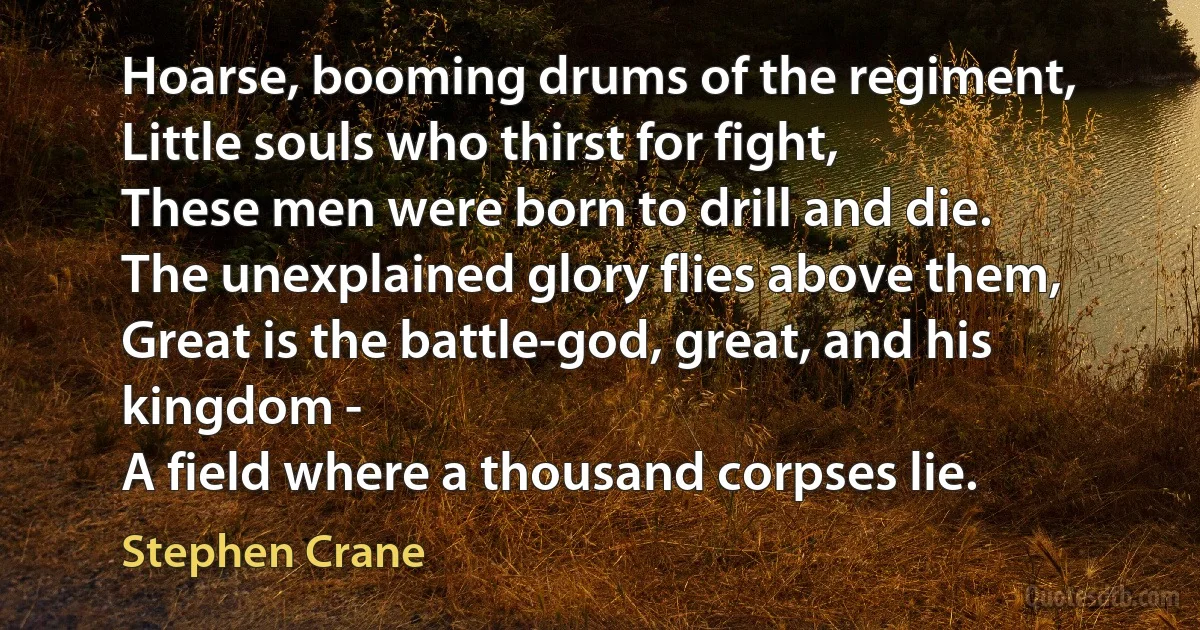Stephen Crane quotes
The wayfarer,
Perceiving the pathway to truth,
Was struck with astonishment.
It was thickly grown with weeds.
"Ha," he said,
"I see that none has passed here
In a long time."
Later he saw that each weed
Was a singular knife.
"Well," he mumbled at last,
"Doubtless there are other roads."

Stephen Crane
"Truth," said a traveller,
"Is a rock, a mighty fortress;
"Often have I been to it,
"Even to its highest tower,
"From whence the world looks black.""Truth," said a traveller,
"Is a breath, a wind,
"A shadow, a phantom;
"Long have I pursued it,
"But never have I touched
"The hem of its garment."And I believed the second traveller;
For truth was to me
A breath, a wind,
A shadow, a phantom,
And never had I touched
The hem of its garment.

Stephen Crane
The word is clear only to the kind who on peak or plain, from dark northern ice-fields to the hot wet jungles, through all wine and want, through lies and unfamiliar truth, dark or light, are governed by the unknown gods, and though each man knows the law, no man may give tongue to it.

Stephen Crane
When it occurs to a man that nature does not regard him as important, and that she feels she would not maim the universe by disposing of him, he at first wishes to throw bricks at the temple, and he hates deeply the fact that there are no bricks and no temples. Any visible expression of nature would surely be pelleted with his jeers. Then, if there be no tangible thing to hoot he feels, perhaps, the desire to confront a personification and indulge in pleas, bowed to one knee, and with hands supplicant, saying: "Yes, but I love myself." A high cold star on a winter's night is the word he feels that she says to him. Thereafter he knows the pathos of his situation.

Stephen Crane
It rained. The procession of weary soldiers became a bedraggled train, despondent and muttering, marching with churning effort in a trough of liquid brown mud under a low, wretched sky. Yet the youth smiled, for he saw that the world was a world for him, though many discovered it to be made of oaths and walking sticks. He had rid himself of the red sickness of battle. The sultry nightmare was in the past. He had been an animal blistered and sweating in the heat and pain of war. He turned now with a lover's thirst to images of tranquil skies, fresh meadows, cool brooks - an existence of soft and eternal peace.
Over the river a golden ray of sun came through the hosts of leaden rain clouds.

Stephen Crane
It would be difficult to describe the subtle brotherhood of men that was here established on the seas. No one said that it was so. No one mentioned it. But it dwelt in the boat, and each man felt it warm him. They were a captain, an oiler, a cook, and a correspondent, and they were friends, friends in a more curiously iron-bound degree than may be common. The hurt captain, lying against the water-jar in the bow, spoke always in a low voice and calmly, but he could never command a more ready and swiftly obedient crew than the motley three of the dingey. It was more than a mere recognition of what was best for the common safety. There was surely in it a quality that was personal and heartfelt. And after this devotion to the commander of the boat there was this comradeship that the correspondent, for instance, who had been taught to be cynical of men, knew even at the time was the best experience of his life. But no one said that it was so. No one mentioned it.

Stephen Crane



